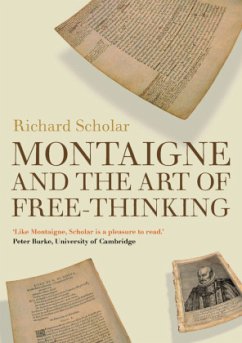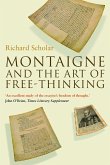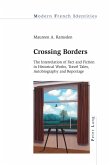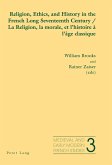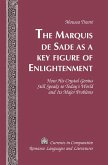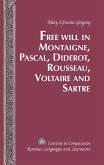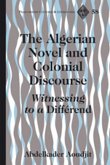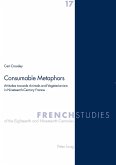We know a great deal of what Michel de Montaigne (1533-92), Shakespeare's near-contemporary and fellow literary mastermind, thinks. We know, because he tells us on page after page of his Essais , which have marked literature and thought since the European Renaissance and remain to this day compelling reading. It might seem surprising, with this wealth of evidence at hand, that Montaigne could prove so elusive in his thinking. Yet elusive he proves, as volatile as he is voluble. What, we are left wondering, does all that thinking amount to? How is it to be understood? And what value might it have for us?
Montaigne has too often seen his thinking reduced to the expression of an '-ism'. Richard Scholar investigates the nature - and detail - of Montaigne's evolving attempts to seek out that elusive thing called truth. Examining at close quarters passages from across the Essais , Scholar provides twenty-first-century readers with a companion guide to a text that is rooted in the time and place of its composition and yet continues to speak to the present, to haunt its readers, to ask them the questions that matter.
Montaigne has too often seen his thinking reduced to the expression of an '-ism'. Richard Scholar investigates the nature - and detail - of Montaigne's evolving attempts to seek out that elusive thing called truth. Examining at close quarters passages from across the Essais , Scholar provides twenty-first-century readers with a companion guide to a text that is rooted in the time and place of its composition and yet continues to speak to the present, to haunt its readers, to ask them the questions that matter.
"Luminously clear, persuasive and thought-provoking." (Sarah Bakewell, author of 'How to Live: A Life of Montaigne in One Question and Twenty Attempts at an Answer')
"In this accessible and attractively written literary companion to the thought of the 'Essais', Richard Scholar tells first-time readers all they need to know, while at the same time offering a bold new image of Montaigne as a writer committed to the adventure of free-thinking." (Terence Cave, author of 'How to Read Montaigne')
"Learned, rich in insights and always accessible, Scholar's book will appeal to seasoned readers of Montaigne as well as to those approaching the 'Essais' for the first time." (Mary B. McKinley, author of 'Words in a Corner: Studies in Montaigne's Latin Quotations')
"In this accessible and attractively written literary companion to the thought of the 'Essais', Richard Scholar tells first-time readers all they need to know, while at the same time offering a bold new image of Montaigne as a writer committed to the adventure of free-thinking." (Terence Cave, author of 'How to Read Montaigne')
"Learned, rich in insights and always accessible, Scholar's book will appeal to seasoned readers of Montaigne as well as to those approaching the 'Essais' for the first time." (Mary B. McKinley, author of 'Words in a Corner: Studies in Montaigne's Latin Quotations')
« Like Montaigne, Scholar is a pleasure to read. » (Peter Burke, University of Cambridge)
« Despite his surname, Richard Scholar wears his considerable learning lightly in this elegant introduction to Montaigne's Essais, an introduction of interest to seasoned as well as green readers of the text.... Just as Montaigne extols freedom of judgment by means of examples both ancient and modern, so too Scholar moves back and forth through time with a Montaignian ease. » (Zachary S. Schiffman, H-France Review)
« A learned, well-written, and useful companion to the Essais. » (Times Higher Education Supplement)
« Luminously clear, persuasive, and thought-provoking. » (Sarah Bakewell, author of How to Live: A Life of Montaigne in One Question and Twenty Attempts at an Answer)
« In this accessible and attractively written literary companion to the thought of the Essais, Richard Scholar tells first-time readers all they need to know, while at the same time offering a bold new image of Montaigne as a writer committed to the adventure of free-thinking. » (Terence Cave, University of Oxford, and author of How to Read Montaigne)
« Despite his surname, Richard Scholar wears his considerable learning lightly in this elegant introduction to Montaigne's Essais, an introduction of interest to seasoned as well as green readers of the text.... Just as Montaigne extols freedom of judgment by means of examples both ancient and modern, so too Scholar moves back and forth through time with a Montaignian ease. » (Zachary S. Schiffman, H-France Review)
« A learned, well-written, and useful companion to the Essais. » (Times Higher Education Supplement)
« Luminously clear, persuasive, and thought-provoking. » (Sarah Bakewell, author of How to Live: A Life of Montaigne in One Question and Twenty Attempts at an Answer)
« In this accessible and attractively written literary companion to the thought of the Essais, Richard Scholar tells first-time readers all they need to know, while at the same time offering a bold new image of Montaigne as a writer committed to the adventure of free-thinking. » (Terence Cave, University of Oxford, and author of How to Read Montaigne)

